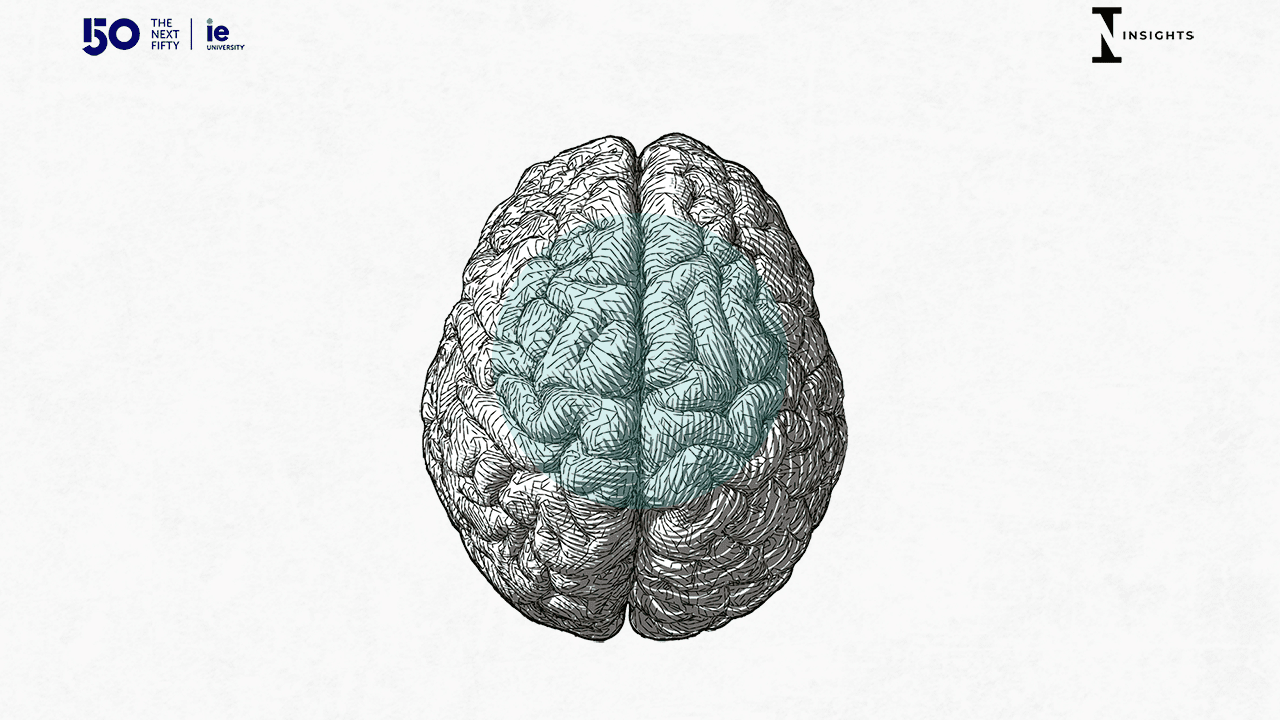Link copied
IE insights - IDEAS TO SHAPE THE FUTURE - Education

The Next Big Challenge: Redesigning Our Brain to Boost Its Capacities
Understanding the composition and function of the brain is key to unlocking its potential.
The latest advances in artificial intelligence fascinate us and represent a Copernican revolution for education, our access to knowledge and formulating a new vision of the world.
In contrast with the evolution of technologies, our bodies and our brains have evolved little over the past millennium. One of the main challenges for the next 50 years is how to redesign our brain to enhance its cognitive, intellectual, and emotional potential. The original design of our brain dates back to the age of reptiles. The new challenging environment requires a sublime shift of our intellectual capacities.
However, the brain is still the North Pole of scientists and philosophers: still largely unexplored, contested across a range of disciplines and a source of rich resources. We might have a better understanding of how we think, decide, and behave if we knew more about the composition and functioning of our brain, but much of it is uncharted territory. In recent years, a growing range of disciplines have begun exploring how our brains work, and one of the newest and most interesting is neurophilosophy, which posits that mental states, such as our thoughts, memories and feelings, have a physicochemical origin within the brain. For example, the happiness we experience when we see a loved one after an absence happens because our brain secretes certain hormones, specifically oxytocin and vasopressin, which make us more sociable, empathic, and cheerful. These processes typically involve different areas of the brain: neurons receive visual information through electrical impulses from the optic nerve; the ability to recall information is provided by memory, along with many other neuronal interactions or synapses, all of which take place within milliseconds.
We humans use our neuronal capacity throughout our lives, producing synapses as a result of learning, experience or the association of ideas and knowledge. Other mammals use their neuronal capacity for finding food, defending themselves and reproducing. That explains why mammals such as bison walk from birth and soon learn to feed themselves.
As we know, human babies are dependent on their parents up to relatively advanced ages compared to other species, during which time they develop greater intellectual capacity. In light of this marvel of evolution, we must wonder if the brains of those who succeed us over the centuries will develop an intellectual capacity we can only imagine. But as things stand, it seems more likely that artificial intelligence and machine learning will evolve much faster than the brain and perhaps develop into a more skilled species than human beings themselves.
The potential of psychopharmacology is a fascinating avenue for development and could have transformative effects on our body and our mind, including the enhancement of our brain capacities. If our brain is not going to evolve organically to keep up with technological and social change, why not resort to nanotechnology and chemistry to make us more intelligent and have richer cognitive and emotional experiences? This is not tantalizing: as has happened before, reality will likely outdo fiction.
Until our brains reach that stage of evolution, the best possible solution for expanding our mental capacities is through lifelong learning. Here, the good news is that our brain is amazingly flexible and can generate new neurons over time. Some experiments have shown that studied, intensive exercise of our intellectual faculties can facilitate the growth of neurons. Indeed, there are reasons for hope in the next 50 years.
© IE Insights.
